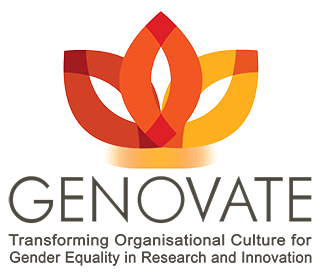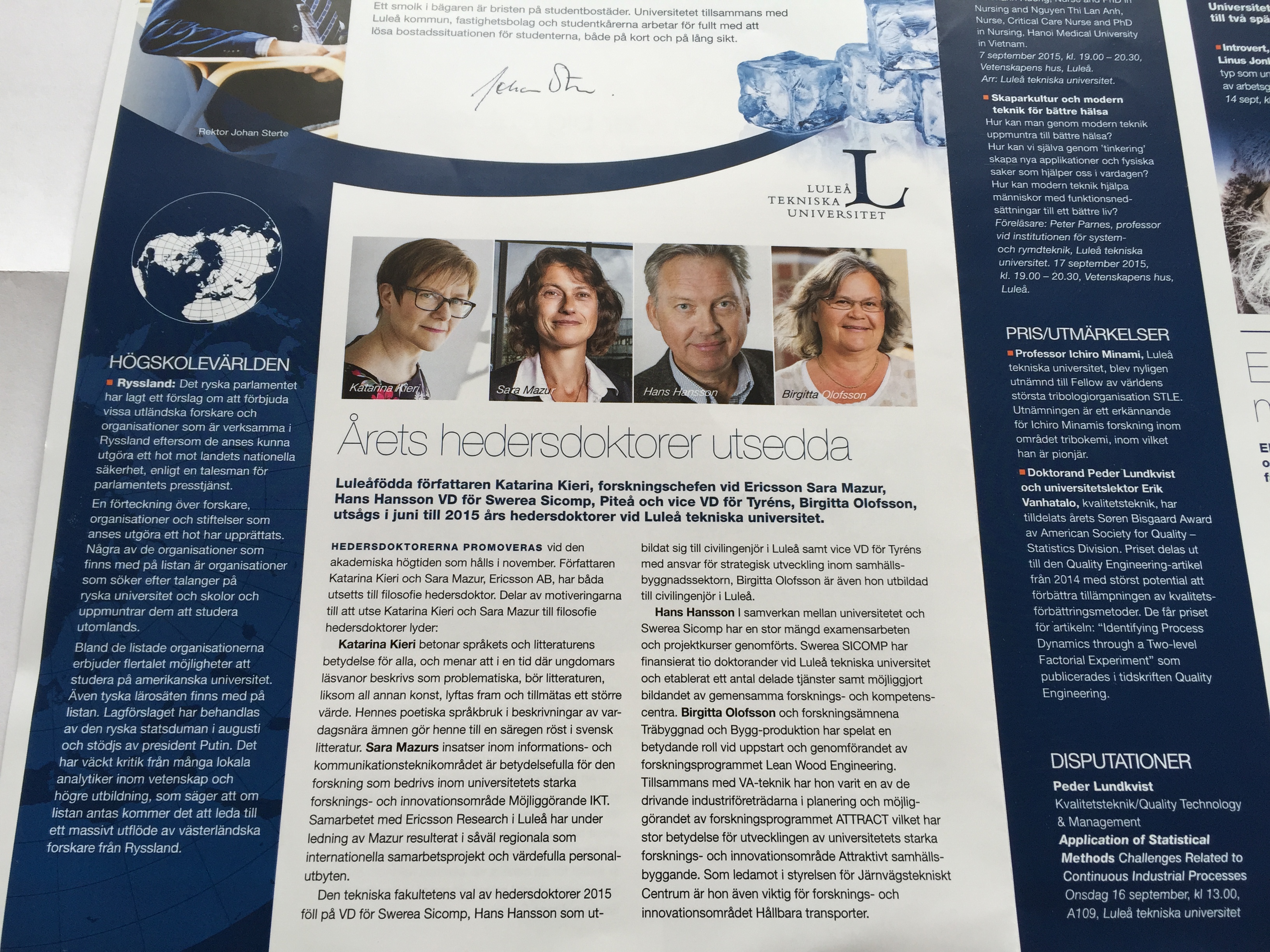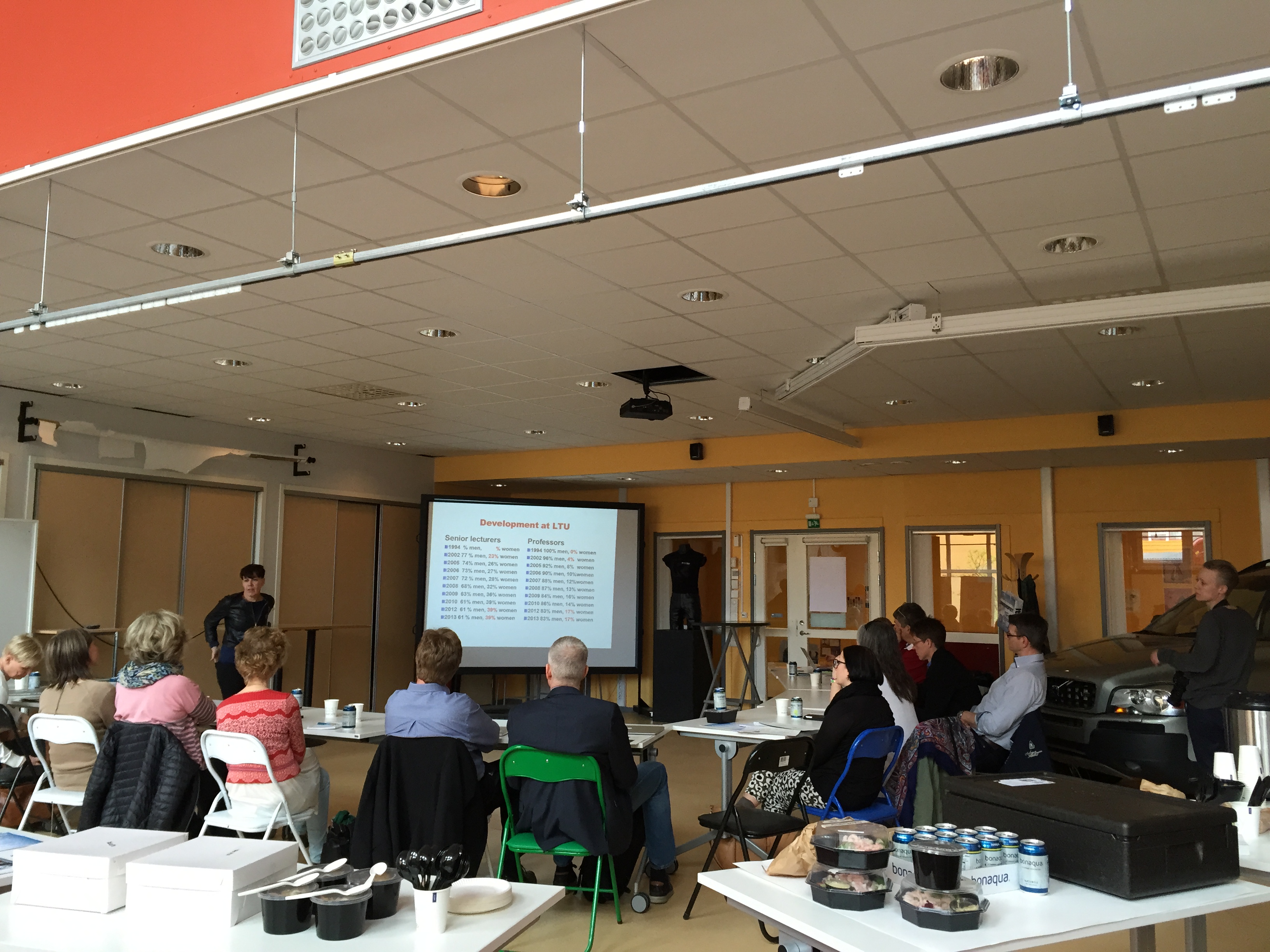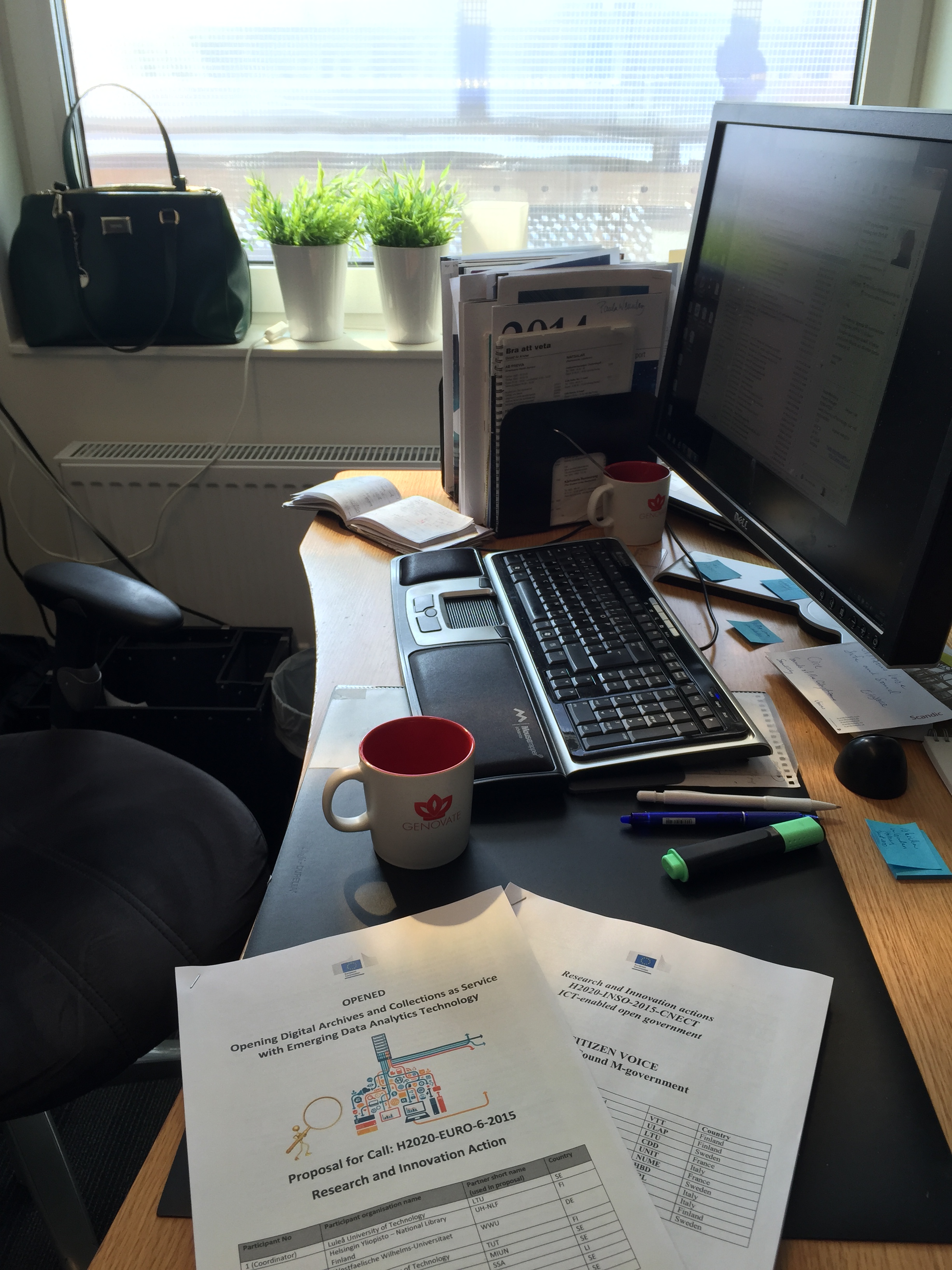 The GENOVATE Community is a platform which enables GENOVATE partners to share institutional information and case studies, and facilitates the coordination of a buddy system for bench learning.
The GENOVATE Community is a platform which enables GENOVATE partners to share institutional information and case studies, and facilitates the coordination of a buddy system for bench learning.
The GENOVATE Community consist of seven GENOVATE partner institutions; the GENOVATE International Advisory Board; key strategic collaborators and stakeholders and the general public. It is a mechanism designed to facilitate meaningful knowledge exchange across the community at local, national and international levels within each of the partner institutions’ countries, across Europe and globally.

This year’s honorary doctors now appointed at the LTU. Honorary degree recipients are individuals who have done outstanding academic work or in some other way promoted research at the university. Read more http://www.ltu.se/ltu/media/news/Arets-hedersdoktorer-utsedda-1.142017?l=en


How to support more sustainable recruitment processes? How to integrate a gender equality perspective in recruitment processes? How to create an attractive and equal work place? How to increase a number of women in the IT sector?
LTU’s first Genovate Learning Circle on June 10, 2015 attracted both internal and external stakeholders with diverse competencies and experiences. Participants from two universities, companies, a municipality and a funding agency discussed and shared knowledge and experiences on recruitment in academia and other organisations. More pictures of the three-hour interactive workshop are available on the web site http://www.ltu.se/centres/cdt/Om-oss/Genus-och-mangfald/Genovate-Learning-Circle


Yesterday two more H2020 proposals were submitted to the European Commission. One is about the public sector’s requirements to preserve and open increasing amounts of heterogeneous digital information that should be utilized by citizens and businesses. The project will collaborate with Genovate in order to integrate a gender dimension in relevant parts of the project.
The other one deals with improved communication between citizens and public administration with new personalized services using visualization and user motivation. Power structures and group compositions according to age, gender, ethnicity, class and educational level will be considered when including the different stakeholders in the participatory design process.

Powered by Multicategories for Joomla!2.5